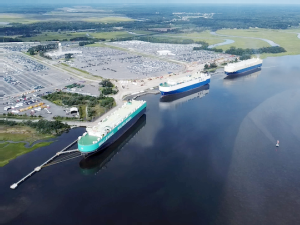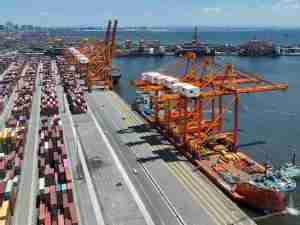Frequently asked questions about the Jones Act and the Gulf oil Spill:
What is the Jones Act?
The "Jones Act" refers to several provisions of federal law that reserve certain maritime services within American domestic waters for U.S.-built, U.S.-owned, and U.S.-crewed vessels. Almost every nation has similar laws, which are known as cabotage laws. The primary purpose of a cabotage law is to draw a distinction between international trade (between countries) and domestic trade (within a country). Ships (and airplanes and trucks) that operate in U.S. domestic trade must obey American laws, including immigration, employment, safety, environmental, tax, labor and other laws. American laws in almost every category are stricter than the laws that govern shipping in international trade. Pertinent to the Gulf oil spill, the law already includes well-established provisions that allow the use of foreign vessels when no American vessel is available. American law is particularly flexible in allowing the use of foreign oil spill response vessels such as skimmers.
Has the Jones Act resulted in foreign vessel, particularly foreign skimming vessels, being turned away?
The National Incident Command (NIC) says there has been "no case" where an offer of foreign assistance has been declined because of the Jones Act. In fact, the U.S. State Department has said that "[a] number of offers of assistance have been accepted," including Mexican skimmers, Norwegian skimming systems and other assets from Canada, Germany, and the Netherlands. The Jones Act does not even apply to skimming operations outside of 3 miles from shore. Oil skimming outside 3 miles, including near the well 50 miles from shore that is the source of the leak, is completely open to foreign oil spill response vessels. That is where the vast majority of skimming has occurred so far.
The Jones Act also can be waived on a case-by-case basis if there is a need but no American vessel is available to meet that need. That waiver process is always quick but it has been streamlined even further by Admiral Thad Allen and the NIC since the spill to deal with any waiver requests. Additionally, on June 16, 2010, the Coast Guard Federal On-Scene Coordinator for the oil spill determined that there is an insufficient number of specialized oil skimming vessels in the U.S. to respond to this spill. This determination allows foreign specialized skimming vessels to be deployed within 3 miles of the shore if the foreign country provides the same privileges to American skimming vessels in that country's waters.
Are these case-by-case waivers being granted?
The NIC says "no waivers of the Jones Act ... have been required because none of the foreign vessels currently operating as part of the BP Deepwater Horizon response has required such a waiver." As discussed above, the deployment of specialized foreign skimming vessels that is now taking place does not require a waiver of the Jones Act. If the use of foreign vessels is necessary, the American maritime industry has stated publicly that it will not oppose the use of these well-established waiver procedures.
The Consul General of the Netherlands was quoted as saying that his country offered vessels but the US. and BP declined. why?
We do not know why those particular Dutch vessels were declined (or even if they were) but we do know it wasn't because of the Jones Act. As mentioned earlier, foreign vessels can skim oil or perform most other maritime services freely in the area where most of the oil can be found - out beyond 3 miles from our shoreline - plus the streamlined provisions in the law to allow foreign skimmers to operate within 3 miles have been activated. Many f










